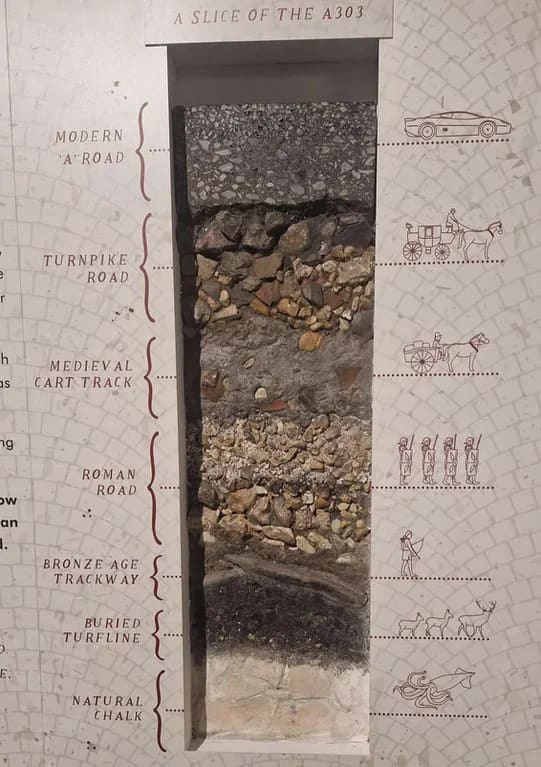Opportunities
News & announcements
Waymo and Cruise have been approved to operate robotaxis in San Francisco
Rainmaker launches to “end global water scarcity and terraform Earth”
Podcasts
Dwarkesh Patel interviews Dario Amodei, CEO of Anthropic (via @dwarkesh_sp). “Dario is hilarious & has fascinating takes on what these models are doing, why they scale so well, & what it will take to align them”
Links
Monumental Labs is building “AI-enabled robotic stone carving factories” to “create cities with the splendor of Florence, Paris, or Beaux-Arts New York, at a fraction of the cost.” Here’s a demo (via @devonzuegel). They are hiring stone carvers (who are still required for fine details and finishing)
The AI License Raj: AI is facing serious bureaucratic hurdles in getting adopted (by @WillRinehart)
“My personal history as a metascience venture capitalist” (by @stuartbuck1)
A303 in Hampshire, England, passes through Stonehenge and part of the ancient Roman Fosse Way is included in it (via @Rainmaker1973)
Social media
If you got over-excited about LK-99, worth recalibrating your priors. But if you correctly predicted no RTS, there’s really no need to gloat. Related: LK99 demonstrated that the scientific community is perfectly capable of doing a peer review via arXiv and social media tools
“NuScale started working toward regulatory approval in 2008. In 2020, when it received a design approval for its reactor, the company said the regulatory process had cost half a billion dollars, and that it had provided about 2 million pages of supporting documents to the NRC.” Related, my book review on why nuclear power flopped
What it means to endlessly, tirelessly campaign for your idea
Maybe “balance” is an unhappy person’s idea of a happy life. Happy people seem fine being unbalanced
Alexander Fleming originally called penicillin “mould juice”
Quotes
Trying a new format where I put the full quotes inline. (Emphasis added.) Links go to social media so you can easily share. Let me know what you think:
The invention of the history of ideas (Peter Watson, Ideas: A History of Thought and Invention, from Fire to Freud)
The first person to conceive of intellectual history was, perhaps, Francis Bacon (1561–1626). He certainly argued that the most interesting form of history is the history of ideas, that without taking into account the dominating ideas of any age, ‘history is blind’.
Why automobiles were better than horses—from someone who lived through the transition (David McCullough, The Wright Brothers)
Amos Root bubbled with enthusiasm and a constant desire to “see the wheels go round.” He loved clocks, windmills, bicycles, machines of all kinds, and especially his Oldsmobile Runabout. Seldom was he happier than when out on the road in it and in all seasons. “While I like horses in a certain way [he wrote], I do not enjoy caring for them. I do not like the smell of the stables. I do not like to be obliged to clean a horse every morning, and I do not like to hitch one up in winter. … It takes time to hitch up a horse; but the auto is ready to start off in an instant. It is never tired; it gets there quicker than any horse can possibly do.” As for the Oldsmobile, he liked to say, at $350 it cost less than a horse and carriage.
Even kings and emperors suffered from terrible road conditions, as late as the 18th century (Richard Bulliet, The Wheel)
Until new experiments with road building began to bear fruit in the mid-nineteenth century, the surfaces beneath the carriage wheels remained rutted, muddy, and poorly paved—if paved at all. This was particularly true in the countryside, but miserable roads existed even in major cities. In 1703, for example, during a trip south from London to Petworth, fifty miles away, the carriage carrying the Habsburg emperor Charles VI overturned twelve times on the road. And a half century later, Mile End Road, the major thoroughfare leading east from the entrance to the City of London at Aldgate, was described as “a stagnant lake of deep mud from Whitechapel to Stratford,” a distance of four miles.
Mises against stability (Daniel Stedman Jones, Masters of the Universe)
Like Popper, Mises saw a similarity between the bureaucratic mentality and Plato’s utopia, in which the large majority of the ruled served the rulers. He thought that “all later utopians who shaped the blueprints of their earthly paradises according to Plato’s example in the same way believed in the immutability of human affairs.” He went on, Bureaucratization is necessarily rigid because it involves the observation of established rules and practices. But in social life rigidity amounts to petrification and death. It is a very significant fact that stability and security are the most cherished slogans of present-day “reformers.” If primitive men had adopted the principle of stability, they would long since have been wiped out by beasts of prey and microbes.
What it’s like to try to redirect the lava flow of an erupting volcano (Eldfell, Iceland, 1973) (John McPhee, The Control of Nature)
During the eruption, when the pumping crews first tried to get up onto the lava they found that a crust as thin as two inches was enough to support a person and also provide insulation from the heat—just a couple of inches of hard rock resting like pond ice upon the molten fathoms. As the crews hauled and heaved at hoses, nozzle tripods, and sections of pipe, they learned that it was best not to stand still. Often, they marched in place. Even so, their boots sometimes burst into flame.
Charts
US utilization-adjusted TFP has experienced 3 consecutive quarters of decline and is now below the level it was at in 2019Q4, before the pandemic. This is bad (via @elidourado)


Cloud seeding doesn’t work. It’s as pseudoscientific as homeopathy or crystal healing. I was trying to use it as an example for a general principle, but you can see this post for some explanation.
RO desalination works great tho, of course. It’s about as cheap as water from the Colorado River is now priced.